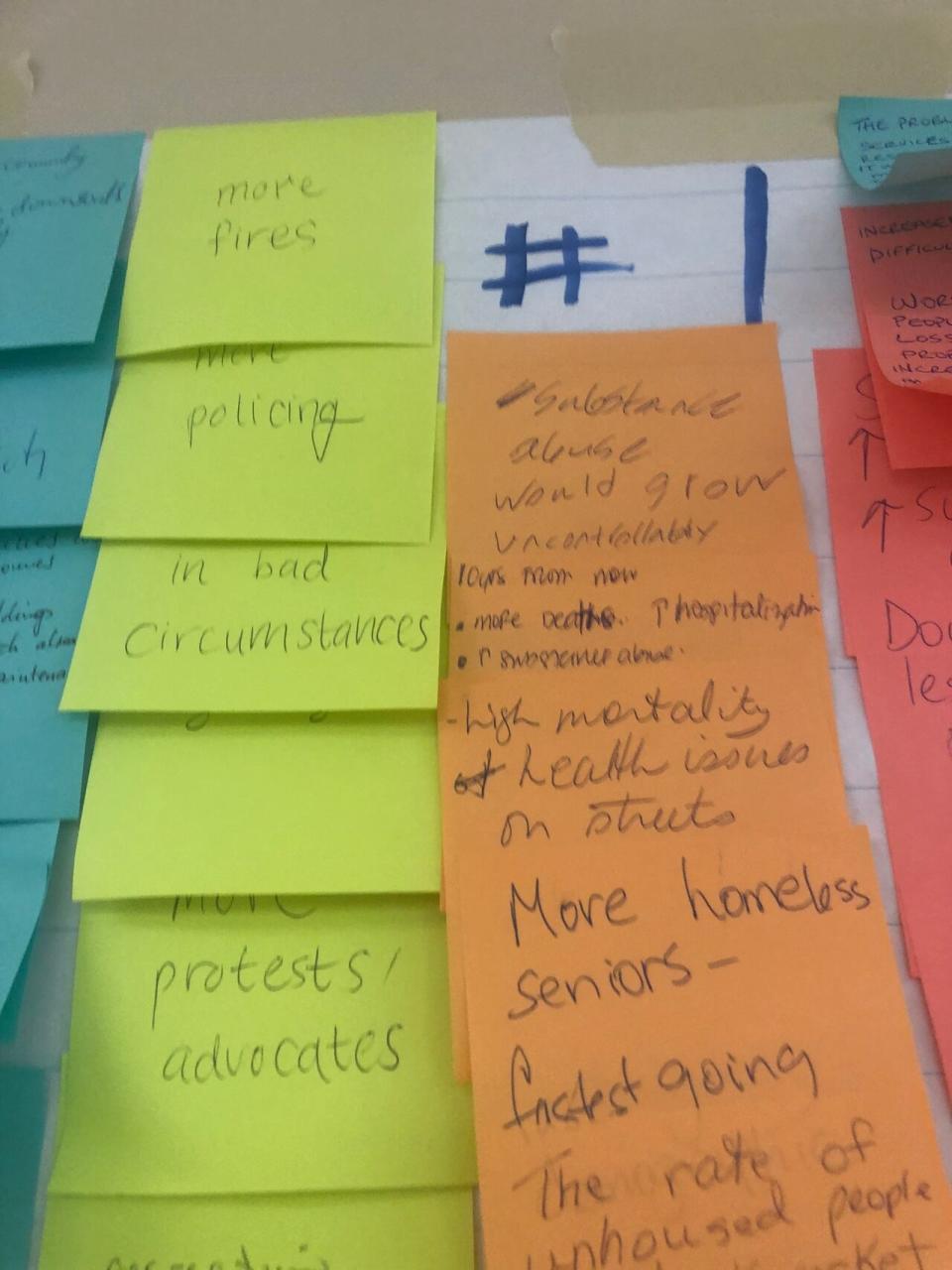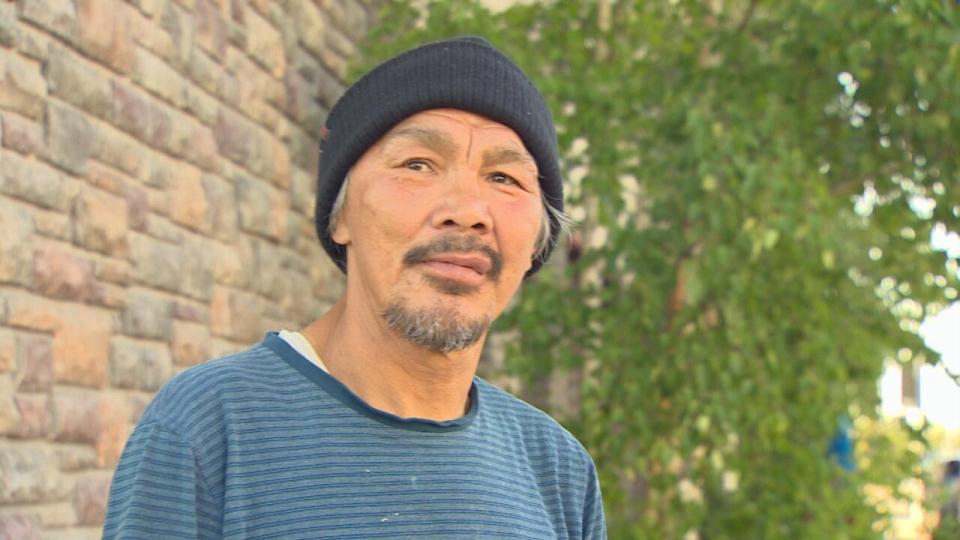Yellowknife roundtable looks for solutions to homelessness
About 70 people came together to speak about homelessness in Yellowknife at a roundtable discussion at the Tree of Peace Friendship Centre on Wednesday.
The event was organized by the City of Yellowknife, and facilitated by Wally Czech with the Canadian Alliance to End Homelessness.
Attendees included several city councillors, service providers, and other residents, even a contingent of University of Toronto students in the city for a class — but very few people with lived experience of homelessness.
Attendees used words including "desperate," "emergency," and "unhealed trauma," and "greed" to describe the current situation in the city.
Tina Wrigley, who is a student at the Rhodes Wellness College Indigenous counselling program, spoke about the need for an Indigenous-run treatment centre or healing centre in the territory.
"Most of our people that's homeless is dealing with mental illness, and we don't talk about that… trauma, to residential school, to day school, everything that they are battling with being homeless — there's no help here," she told CBC.

Wrigley also called on governments and non-profits working with unhoused people in Yellowknife to hire more Indigenous workers.
"Give us a chance. Lift up experience," she said during Wednesday's roundtable meeting. "We know what they are going through and how we can handle it."
The discussion came at a time when shelters in Yellowknife are struggling with overcrowding and violence because of a big increase in demand for their services.
Yellowknife Mayor Rebecca Alty said the goal of the event on Wednesday was to bring community members with different perspectives together to speak about this issue.
Discussions were mostly general in focus. Attendees, broken up into small groups, were asked to imagine how the city would change if efforts to alleviate homelessness don't work or if they do. They were also asked to describe the current situation.

When the time came to talk about what actions needed to be taken to create change, facilitator Wally Czech urged attendees to be more detailed, saying, "what's missing is the micro-steps to get there."
Adolf Hakuluk, who has been waiting on housing for two years, attended because he wanted to know what people would say about the issue.
He said he has seen Yellowknife has become a "scary" place for unhoused people like him.
"There's lots of fighting and lots of people do hard drugs and stuff like that," he said.

Yellowknife Mayor Rebecca Alty told CBC's Trailbreaker host Hilary Bird on Thursday morning that she had two main takeaways from the roundtable.
"We really need the permanent supportive housing, transitional housing, affordable housing all along the spectrum," she said. "And the other big one is the need for quicker access to trauma healing, as well as the mental health and addictions [services]."
She also said she believes that Yellowknife needs a second men's shelter to meet the current demand, as well as potentially more shelter beds for women.
"By the time winter comes folks are going to need a place to stay," she said.
Alty also said that, without funding from territorial and federal governments, "it's limited" what the city can do to advance these initiatives.
All of the feedback and discussion generated by the roundtable will be compiled into a "what we heard" report, which is expected to be released by the end of the summer.

 Yahoo News
Yahoo News 
